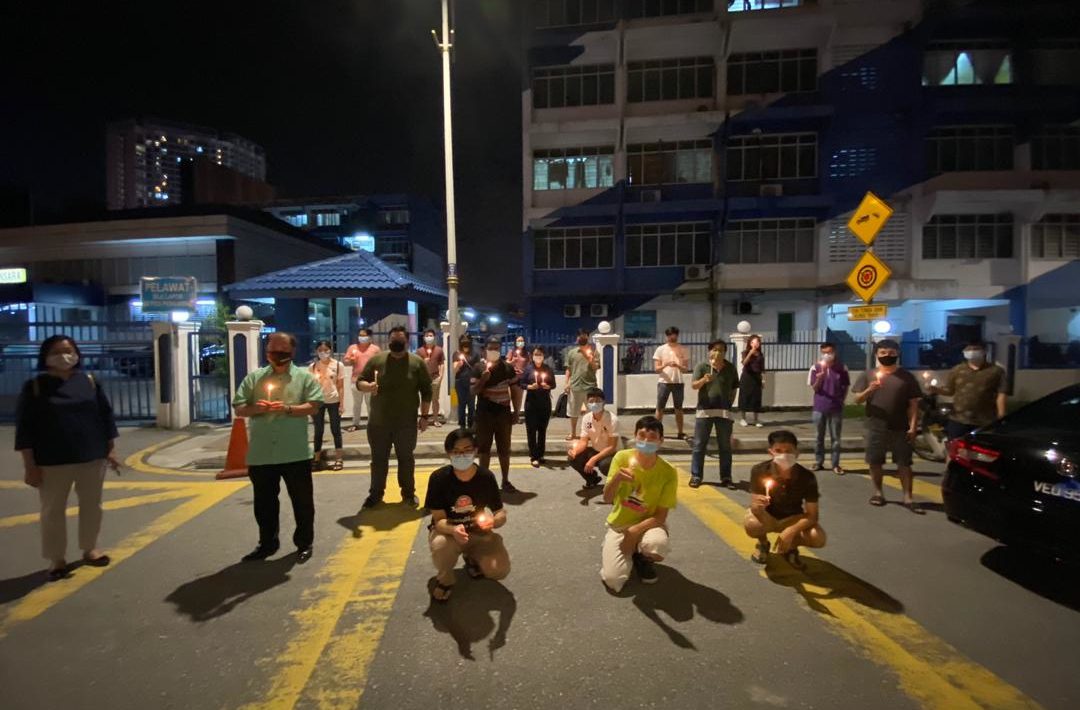Amnesty International Malaysia expresses deep concern that members of the student organisation University of Malaya Association of New Youth (UMANY) are being subject to police investigation. On 5 November 2020, 2 students were called for questioning and investigation regarding a post on Facebook discussing the scope of the Yang di-Pertuan Agong’s powers under the Federal Constitution; 7 more students are to be questioned in the coming week. The former president of UMANY, Wong Yan Ke, was also arrested for “obstruction of justice.”
“The decision to investigate these students is appalling. It is a violation of their right to freedom of expression, especially considering that the Facebook post they made was intended to be part of an academic debate. This move by the authorities is an obvious attempt to intimidate and silence them,” said Katrina Jorene Maliamauv, Executive Director of Amnesty International Malaysia.
“Freedom of expression is a guaranteed right under international human rights law as well as the Federal Constitution and should only be limited in extreme circumstances. The infringement of this right even for the purposes of expressing an academic opinion follows the trend of an administration increasingly intolerant to any forms of criticism or opinion it disagrees with,” continued Katrina.
On 5 November 2020, the president of UMANY, Yap Wen Qing, and the vice-president, Tan Li Yuan, were questioned by the police. On 7 November 2020, Wong Yan Ke, an activist and former president of UMANY, was arrested under Section 186 of the Penal Code for “obstruction of justice” after he filmed a video of a police officer attempting to enter the residence of Wen Qing, allegedly without a warrant. Wen Qing also had his laptop and mobile phone confiscated under Section 8 of the Sedition Act, which does not require a warrant.
The members of UMANY will be investigated under Section 4(1) of the Sedition Act 1948 and Section 233 of the Communications and Multimedia Act 1998.
In cases such as Wen Qing’s, the police must be held to account for possible breaches of code of conduct in the course of their duties. The government’s crackdown on freedom of expression was not just confined to the students stated above as four other individuals were also called in for questioning earlier by the police over comments made on social media. The multitude of such arrests and investigations is alarming and does not bode well for the right to freedom of expression in Malaysia.
“We strongly urge the authorities to drop investigations against UMANY members, release those who have been arrested, and end its persecution against those exercising their freedom of expression. Repressive laws such as the Sedition Act 1948 should be repealed and the Communications and Multimedia Act 1998 reviewed and amended to ensure it is in strict compliance with international human rights standards,” said Katrina.
“Additionally, we call upon the administration of University of Malaya to facilitate academic discussions and protect students’ right to free speech. Gatekeeping ideas and penalising students for having critical opinions only serves to dampen and harm academic discourse. The right to freedom of expression is a fundamental human right that should be enjoyed by all persons in Malaysia, including students,” concluded Katrina.
Background
On 27 October 2020, the police stated that they were investigating Democratic Action Party (DAP) assemblyman Ronnie Liu for a post on Facebook depicting protestors in Bangkok, Thailand protesting their monarchy, as well as three other individuals over remarks made on social media related to the royalty. All four individuals are also being investigated under Section 4(1) of the Sedition Act 1948 and Section 233 of the Communications and Multimedia Act 1998. Ronnie Liu was subsequently arrested on 28 November 2020.
On 31st October 2020, UMANY published posts entitled “The YDPA should not interfere in National Affairs” on the UMANY’s English and Chinese Facebook page. The post centred around the scope of the Yang di-Pertuan Agong’s powers, and was made in response to the Yang di-Pertuan Agong’s decision not to accept the proposal by Prime Minister Tan Sri Muhyiddin Yassin to implement a state of emergency to combat the COVID-19 pandemic, as well as the YDPA’s advice to all members of Parliament to accept the government-proposed budget for 2021.
Subsequently, the post was widely circulated and attracted attention. This resulted in hate speech directed at UMANY members, as well as their personal details being exposed, and threats of violence being made towards them. The post was later taken down on the advice of a lawyer.
The Sedition Act 1948 and the Communications and Multimedia Act 1998 have long been criticised by civil society organisations for their wide provisions, allowing for investigations to be opened against those perceived to be critical of the state.


